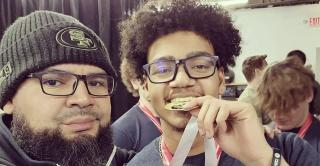| | Courses must meet or exceeds expectations for a minimum of THREE of the following options. | | | | | |
| | Identifies discipline-specific equity, social justice, and inclusion learning objectives. | | | | | |
| | Content addresses issues or concerns related to diversity, equity, or social justice in the United States. | | | | | |
| | Assigns readings that represent diverse social and cultural voices and perspectives. | | | | | |
| | Instructor makes an effort to historically and socially contextualize material, especially when relevant to concerns of diversity, equity, or social justice and equity | | | | | |
| | Historicizes and contextualizes historical events from an inclusive perspective that reveals the contributions of various members of the society. | | | | | |
| | Explores viewpoints that question power relationships or longstanding conventional wisdom within the discipline. | | | | | |
| | Addresses the concerns of diverse groups. | | | | | |
| | Examines or approaches discipline-specific questions or problems from multiple social or cultural perspectives. | | | | | |
| Pedagogy & Climate | Courses must meet or exceed expectations for a minimum of THREE of the following options. | | | | | |
| | Use of inclusive language (e.g., gender inclusive ‘firefighter versus gendered ‘fireman’; they/them/their rather than she/he). | | | | | |
| | Collaboration with students to develop guidelines for safe and respectful classroom behavior. | | | | | |
| | Use of examples that challenge, rather than reinforce stereotypes and power relationships. | | | | | |
| | Utilization of a variety of instructional strategies, including cooperative learning. | | | | | |
| | Utilization of a variety of assessment strategies, providing an awareness of different learning styles. | | | | | |
| | Faculty conscious of their own cultural and social identity (including power and privilege) and consideration of its significance for teaching and interacting with students who are differently situated. | | | | | |
| | Avoid using students who may seem to be part of a particular group as representatives of that group, in classroom presentations and discussions. | | | | | |
| | Incorporation of diverse teams in projects, teamwork, senior capstone design and field projects. | | | | | |
| Authentic Community/ Outreach Engagement | Note: Recommended only when appropriate for a course | | | | | |
| | Community service opportunity | | | | | |
| | Engagement with countering intersectional injustices; providing methods for student activism. | | | | | |
| | Engagement with restructuring social contexts; providing methods for challenging the institutional forms of injustice. | | | | | |
| | Incorporation of community outreach components into the course. | | | | | |



